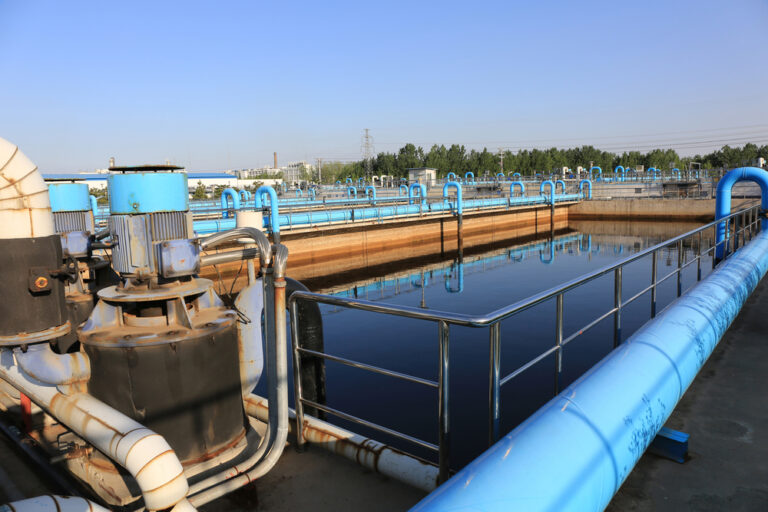In October, the EPA’s Office of Environmental Justice & External Civil Rights’ Office of External Civil Rights Compliance (OECRC) opened an investigation into allegations that the Alabama Department of Environmental Management (ADEM) discriminates against the black residents of Alabama through its implementation of the Alabama Clean Water State Revolving Fund (SRF).

Specifically, the complaint alleges that the ADEM prevents black residents from accessing federal SRF support to improve on-site sanitation access in violation of Title VI of the Civil Rights Act of 1964.
The OECRC investigation will center on two issues:
- “Whether ADEM’s implementation of the Clean Water State Revolving Fund (CWSRF) program, including its public engagement and outreach practices, excludes from participation, denies benefits to, or subjects to discrimination, residents in the Black Belt region of Alabama, on the basis of race in violation of Title VI of the Civil Rights Act of 1964 (Title VI) … and EPA’s nondiscrimination regulation.”
- “Whether ADEM has and is implementing grievance procedures that provide prompt and fair resolution of discrimination complaints which allege violations of federal non-discrimination laws, consistent with Title VI and the other federal civil rights laws, and EPA’s implementing regulation at 40 C.F.R. Parts 5 and 7.”
The Alabama Clean Water SRF is a federally backed program (Drinking Water State Revolving Fund (DWSRF)) that provides low-interest loans to states for the repair and replacement of aging water supply systems.
Sanitation needs
The OECRC investigation is due to a request by environmental and civil rights advocates, Southern Poverty Law Center (on behalf of the Center for Rural Enterprise and Environmental Justice), and the Natural Resources Defense Council (NRDC).
“Many Alabama residents—especially in Black communities—lack access to a centralized sewage utility and must rely on expensive individual household onsite sanitation systems, which often fail,” states an NRDC press release. “Those who cannot afford a functioning onsite system are forced to resort to makeshift straight pipes that discharge raw sewage outdoors. This threatens people’s health, degrades the local environment, and undermines human dignity.”
“Sanitation is a basic human right that every person in this country, and in the state of Alabama, should have equal access to. Those without proper sanitation access are exposed to illness and serious harm,” said Catherine Coleman Flowers, founder of The Center for Rural Enterprise and Environmental Justice, in the NRDC press release. “We are hopeful that the EPA’s investigation will result in positive change for any Alabama resident currently relying on a failing onsite sanitation system and for all U.S. communities for whom justice is long overdue.”?
Specific allegations
According to the NRDC press release, “Alabama has distributed more than one and a half billion dollars in [SRF] money since the program’s inception in 1987, but it has never awarded any money through the state revolving fund to support onsite sanitation needs.” Specific allegations include:
- “ADEM unduly limits recipient eligibility to public bodies like towns or counties. Many other states don’t have this restriction, including Rhode Island, Delaware, Oregon, West Virginia, Iowa, Maryland, and Missouri.”?
- “ADEM created a point system to rank project proposals and decide which projects to fund. But ADEM’s ranking system makes it impossible for people who rely on onsite sanitation to earn enough points to compete for funding. Other states provide a far greater percentage of available points for onsite sanitation needs. North Carolina and Illinois, for example, provide about five times more weight in their point systems to onsite sanitation needs than Alabama. And some states, including Arkansas and Massachusetts, bypass their point systems entirely and dedicate some [SRF] money just for onsite sanitation.”
- “ADEM also refuses to consider financial need when ranking applications for funding. But many other states do consider financial need in their ranking systems, including Colorado, Illinois, and North Carolina.”
- “ADEM doesn’t conduct meaningful outreach to people with onsite sanitation needs. Other states are more proactive. Delaware, for example, has an affirmative outreach program that identifies ‘low- and moderate-income homeowners ... that may need financial assistance to replace failed and/or failing septic systems,’ with a goal of replacing 100 failed or failing systems each year.”
Will the OECRC see this Title VI investigation through?
The OECRC investigation process involves first determining that the complaint meets certain merits, then setting upon a neutral fact-finding mission.
Resolutions are typically arrived at through negotiations and often result in voluntary resolution agreements. Mediation, appeals, and legal filings are other routes used for resolution.
The OECRC recently dropped a similar investigation into alleged discrimination by the state of Louisiana toward black residents of the state’s “Cancer Alley.”
However, “the EPA … abruptly closed its investigation without making findings, providing relief for the communities, or compelling Louisiana to make any commitments of its own,” reported Human Rights Watch (HRW). “The EPA says it ‘actively engaged in regular informal negotiations for several months’ with the state agencies, yet no agreement was signed. The agency also highlighted other actions it has taken and will take in Louisiana to address toxic pollution.”
Negotiations between Louisiana officials and the OECRC abruptly soured at some point, which culminated in the Louisiana attorney general filing suit against the EPA in late May 2023.
Louisiana’s legal case hinges “on the EPA’s ability to pursue actions based on ‘disparate impacts,’ or the idea that a policy or agency decision can disproportionately harm a specific group of people, regardless of whether or not that harm is intentional,” noted a Grist article.
Many analysts agree with Claire Glenn, a criminal defense attorney with a background in civil rights law who characterized the Title VI program as “hamstrung … because it is so directly butting up against corporate interests,” according to Grist.
It will be interesting to see whether the OECRC investigation into the Alabama SRF will reach a similar conclusion to its investigation into the Louisiana complaint.